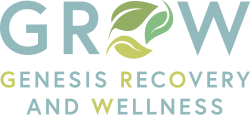It’s no secret that addiction is a severe problem. The National Institute on Drug Abuse (NIDA) estimates that more than 20 million people in the United States struggle with addiction. And while there are many different types of addiction, one thing remains true—addiction is a disease that requires professional treatment. There are many different types of addiction treatment available, but one that is becoming increasingly popular is dialectical behavior therapy (DBT). Marsha Linehan originally developed this type of cognitive-behavioral therapy (CBT) for people struggling with borderline personality disorder (BPD) to reap the benefits of dialectical behavior therapy. However, it has since been adapted to treat other conditions, including addiction. Contact Genesis Recovery and Wellness at 216.331.2998 to learn more about the benefits of DBT for addiction treatment.
What Is DBT?
DBT is a type of CBT that focuses on helping people change their negative thinking and behavioral patterns. DBT differs from CBT because it emphasizes the importance of acceptance and change. Rather than only focusing on changing negative thoughts and behaviors, DBT also stresses the importance of accepting them. This focus on acceptance and change is what gives DBT its name—“dialectical” refers to the tension between these two opposing forces. DBT teaches people new skills to help them deal with their thoughts and emotions more positively. The goal of DBT is to help people become more mindful of their thoughts and behaviors to make better choices. DBT focuses on four main areas:
- Mindfulness – This refers to being aware of your thoughts and feelings in the present moment without judgment.
- Distress tolerance – This refers to the ability to cope with difficult situations in a healthy way without resorting to unhealthy coping mechanisms like substance abuse.
- Emotion regulation – This refers to effectively managing your emotions so they don’t control you.
- Interpersonal effectiveness – This refers to communicating effectively and setting boundaries in relationships.
During DBT sessions, you will work with a therapist to learn new skills in the abovementioned four areas. You will also be given homework assignments to practice these skills outside sessions. In addition, you may be asked to participate in group therapy or attend support groups as part of your treatment plan.
5 Benefits of Dialectical Behavior Therapy
As part of your addiction treatment plan, many benefits are associated with undergoing dialectical behavior therapy. Some of the most notable benefits include the following.
1. Increased Self-Awareness
One of the goals of DBT is to help people become more mindful of their thoughts and behaviors. This increased self-awareness can help you see your patterns more clearly and make better choices.
2. Improved Distress Tolerance
Learning distress tolerance skills can help you better cope with difficult situations without resorting to unhealthy coping mechanisms like substance abuse or disordered eating.
3. Enhanced Emotion Regulation
With improved emotion regulation skills, you will be better equipped to manage your emotions in a healthy way. This can lead to improved mental health overall.
4. Strengthened Interpersonal Relationships
Communication and boundary-setting are two essential aspects of maintaining healthy relationships. Through DBT, you can learn how to communicate your needs and set boundaries with others effectively. As a result, you may find that your relationships are more fulfilling and satisfying.
5. Greater Overall Well-Being
When you can manage your thoughts, emotions, and behaviors in a more positive way, it can lead to increased feelings of happiness and well-being.
Learn More About the Benefits of DBT for Addiction Treatment in Ohio at Genesis Recovery and Wellness
If you are struggling with addiction, undergoing dialectical behavior therapy as part of your treatment plan could provide numerous benefits. Contact Genesis Recovery and Wellness today at 216.331.2998 to learn more about how DBT could help you or a loved one overcome addiction.

